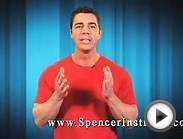
We marvel at the steely nerves, acute concentration, and flawless execution exhibited on the 18th green, at the free-throw line, in the starting blocks, and on the balance beam. While state-of-the-art training regimens have extended athletes’ physical boundaries, more and more coaches are realizing the importance of sport psychology in taking athletic performance to new levels. Tomorrow’s record-breaking accomplishments will not be the result of athletes’ training harder physically, but of athletes’ training smarter mentally.
Sport Psychology for Coaches provides information that coaches need to help athletes build mental toughness and achieve excellence—in sport and in life. As a coach, you’ll gain a big-picture perspective on the mental side of sport by examining how athletes act, think, and feel when they practice and compete. You’ll learn to use such mental tools as goal setting, imagery, relaxation, energization, and self-talk to help your athletes build mental training programs. You’ll also see how assisting your athletes in developing mental skills such as motivation, energy management, focus, stress management, and self-confidence leads to increased enjoyment, improved life skills, and enhanced performance. And you’ll discover how to put it all together into mental plans and mental skills training programs that allow your athletes to attain and maintain a mind-set that fosters peak performance.
The easy-to-follow format of the text includes learning objectives that introduce each chapter, sidebars illustrating sport-specific applications of key concepts and principles, chapter summaries organized by content and sequence, key terms, chapter review questions, a comprehensive glossary, and other useful resources to help readers implement mental training programs for athletes.
Produced by the American Sport Education Program (ASEP) Sport Psychology for Coaches is one of four texts included in the ASEP Silver Level series.
ASEP Silver Level Series Preface
Preface
Acknowledgments
Part I Creating a Solid Foundation
Chapter 1 Coaching Philosophy
Developing a Positive Coaching Philosophy
Understanding Competition and Using It Constructively
Chapter 2 Communication
What Is Communication?
Sending Effective Messages
Attentive Listening
Conflicts and Confrontations
Chapter 3 Introduction to Mental Skills Training
Psychological Factors and Performance Excellence
Does MST Work?
The MST Approach
Roadblocks and Myths Surrounding MST
Developing MST
Part II Developing Mental Training Tools
Chapter 4 Goal Setting
What Are Goals and Why Use Them?
Characteristics of Effective Goals
Making Goals Work: The Goal Implementation Process
Developing Athletes’ Goal-Setting Skills
Chapter 5 Imagery
What Is Imagery?
Factors Influencing the Effectiveness of Imagery
Using Imagery Effectively
Developing an Imagery Training Program
Chapter 6 Relaxation and Energization
What Is Relaxation?
Relaxation Strategies
What Is Energization?
Energization Strategies
Developing Athletes’ Relaxation and Energization Skills
Chapter 7 Self-Talk
What Is Self-Talk?
How Self-Talk Works
Positive Versus Negative Thinking
Optimizing Self-Talk
Developing Athletes’ Smart-Talk Skills
Part III Enhancing Mental Skills
Chapter 8 Motivation
What Is Motivation?
Athletes’ Needs and Intrinsic Motivation
Impact of Rewards
Source: www.humankinetics.com
You might also like:
























You want to build more confidence, make a positive impact in your sport, have more fun and satisfaction and unleash your full potential.